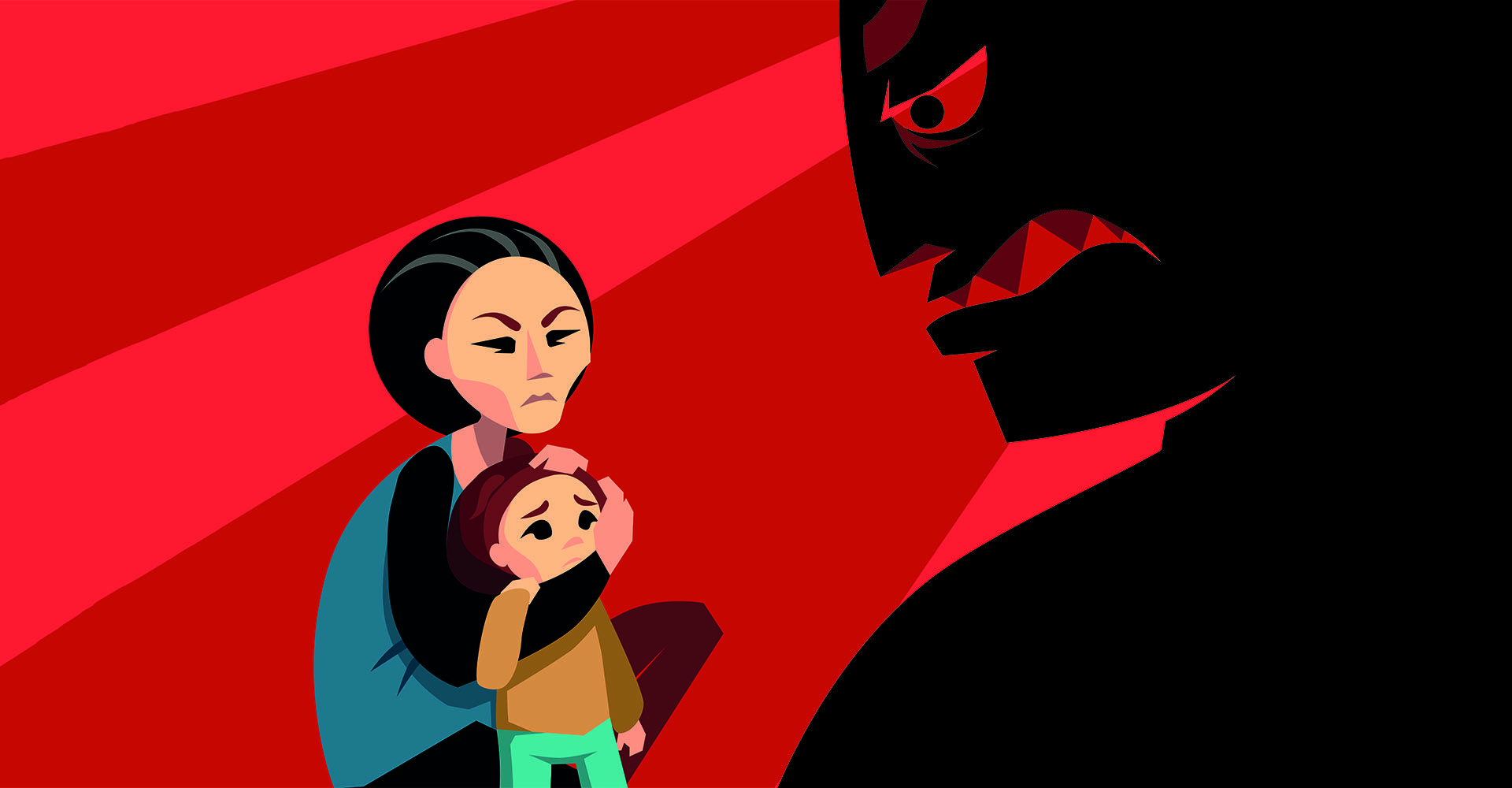
ISIS vs LOVE – Recruiting the Vulnerable
I recently found myself totally lost in the news. This is very unlike me, as in the past fifteen years I have refused to let media manage and influence my mind. What has changed? In order to answer that question, I looked at what gripped me the most. It’s the stories about young people’s fascination of ISIS and the savage outcomes of their morbid ideology.
It’s the stories about their recruitment strategies and trying to understand what makes seemingly normal young people leave the safety and comfort of their homes and get themselves right in the middle of a deadly and terrifying war. I’m trying to figure out what ISIS is selling to our youth, and what we are lacking in our society, that creates fertile ground for this manipulation.
Before I dive in I also must add that I’m primarily focused on the question surrounding the youth in the West although I’m acutely aware that the same thing is happening in much greater numbers with youth in North Africa, Gulf Arab countries, Indian Subcontinent and the Far East.
After spending countless of hours on my various devices, sometimes in the small hours of morning, watching, reading and witnessing various political figures interject some bigotry here and there, I have come to a couple of conclusions.
Every story about someone being recruited by ISIS and their circumstance is unique and although every person had their own reason for making their decision, I believe that they all have several things in common.
Firstly, it’s my view that ISIS have a very systematic and extremely effective approach to recruitment based on the initial promise of providing the most basic human needs of connection, love and belonging.
Secondly, if you are somewhere between the ages of fifteen and twenty-five, and somewhat lonely, misunderstood, rejected and isolated, you are a prime target for ISIS recruiters. Your religious beliefs mean nothing at this point. You can be an atheist, Jew, Muslim, Christian or Buddhist monk because ISIS don’t care as long as you are vulnerable. Those who feel marginalized want to matter and that’s what ISIS makes happen for those they recruit.

Jim Brown, a counter-terrorism expert at the University of Central Lancashire, offers two really clear perspectives of why someone becomes radicalized. He says; “push factors (leading to radicalisation) are things like discrimination and injustice. Pull factors are glamor, sensation seeking, this sense of danger and purpose. it makes it so attractive.
The story of a twenty-three-year-old American Christian girl called Alex (ISIS and the Lonely Young American, a New York Times article):
Targeted by ISIS recruiters, Alex was showered with attention and was thrilled to make so many friends online. She had never before received that much attention and information. They were always there to hang out with her online and answer all her questions. If you were a young woman who felt lonely and isolated and you were not seen and heard by the people around you, perhaps you would entertain a new found friend’s attention too?
In another example I came across, this time from the U.K, a seventeen-year-old Muslim boy goes from not even having a Twitter account to suddenly being followed by thousands of people shortly after being told by ISIS-linked people to open one. Boom! He has a platform, people listened to him, he started to matter and what he said was important. He was being heard! ISIS supporters, probably as part of an explicit strategy, have developed a system that that makes people significant, it makes them important and they feel respected. It’s of course all fake and it sometimes has a deadly outcome when someone leaves for Syria or commits a crime in the name of an ideology.
The strategy ISIS uses is a cunning one and uses people with great skill. According to various reports, ISIS produce anywhere between thirty and forty high-quality videos a day in a multitude of languages. They have proven that they have tens of thousands of twitter and social media accounts and the following to go with it. In the world of connectivity, we all know that content and followers are key.

It is this online community that starts to attend to the likes of Alex and the seventeen-year-old boy. They are intentionally there to serve their targets with answers, with attention or with whatever they feel their targets need to stay engaged. That’s in stark contrast to when Alex tried to talk to people at her church where she was brushed off. Then she asked her questions online, and received her answers within seconds. They send money, gift vouchers, presents. She started to feel belonging and acceptance. This is already beyond the point of no return. It doesn’t matter what the ideology is. Whomever makes you feel seen, heard and respected dictates the direction in which the vulnerable will lean.
Once someone feels like they belong, the next phase begins. They become ripe for the introduction of ideology, doctrine, heroism and a purpose which is bigger and holier than themselves. And we all know where that path leads…
Charlie Winter, a senior research associate at Georgia State University says “Ideology is very important but it is also about how people feel about the society they live in”, in an article on BBC World online.
In the Saint Denis neighborhood where the French police killed the ringleader of the Paris massacres, some of the apartments in that area were in such bad condition that they didn’t even have running water. This is France, a leading world nation in the middle of a wealthy and advanced Europe.
So, how do we protect our youth and keep them being bait for ideology-based hunters?
ISIS outreach happens through social media and targets those who are seeking to belong or feel that the world is not just.
People have to feel good about the social settings they live in. Do we make everyone feel good about the society they live in? Are people engaged and accepted within their own families? Do people feel accepted in their school systems? Are they being stimulated? Do they feel valued and included? Do they feel they have a purpose in life? Can they ask questions and when they do, do they get answered?
As a member of, and believer in a progressive modern society, I have a responsibility to speak up. I also believe that we, as a society and our governments shoulder a responsibility to do more. However, this current crisis is not going to be stopped by air strikes or anti-terrorist raids alone. For everyone we kill another will emerge. I don’t deny the need for current military and police intervention, but it pains me to see the amount of fear and pain that’s present in everyone’s life today from the images from destroyed villages of Syria to Californian cities following Paris and San Bernardino.
While we undeniably face a security crisis we have to double down on creating more sustainable change. We have to look at the vast depths of humanity to find our answers. Killing for God is an old story that has been repeated for thousands of years and despite plenty of tries, has not worked. Do you really think it will work now? I would hope that we have progressed away from waging wars to change others.
We have many questions to answer and countless challenges are on the horizon.
One of hardest part for me to accept are the stories about the kids who traveled to Syria or Iraq to join the likes of ISIS or Al Nusra Front. I’m convinced that the vast majority of them were vulnerable young men and women, some with a history of petty crime and being disenfranchised in their home countries. They went in search for belonging and trying to make sense of the injustice or perhaps inadequacy they felt at home. The stories about people joining ISIS only to realize that it wasn’t what they expected and the consequences of them trying to leave are horrifying. Only last month, I was deeply impacted by the story of a beautiful Austrian seventeen-year-old girl who apparently was beaten to death because she wanted to back to her family in Vienna. Her fifteen-year-old friend was allegedly killed in fighting in 2014. Then there’s the story about the three teenage girls from the U.K. who traveled to Syria never to be heard from again.
For those who managed to escape the clutches of ISIS face serious consequences back home. Are they lost souls? I never lose hope in people, and I assume we will be able to have them rehabilitated. Is there a way to bring them home safe and have their stories told to reach those who are vulnerable?
I know we are facing some hard truths with on-going war in Syria and Iraq, potential terrorist attacks and a stranger-than-fiction political climate in the U.S. I have no doubt that our legal systems will be heavily burdened with how we deal with returning fighters, radicalized teens, racism, bigotry, fear and the list goes on and on, but I still have a very clear vision.
The vision looks beyond the continued despair of refugees, radicalization of youth, the political games of powerful nations, and the unavoidable military interventions and into our homes, our schools and our society as a whole. We need to look out for each other, by seeing people, hearing people and being curious without judgment. Just because someone isn’t like you, it doesn’t mean that they are not of your world. This is not about race or religion, it’s about being human in its purest form.
In a world where political rhetoric reigns and anti-terrorist forces are on the streets we can balance it all just a little. We all need to change. It doesn’t take a lot to make someone belong; a question, a helping hand, an invitation, a conversation. Just make sure you start at home first.
Gonan Premfors
Gonan is the originator of the philosophies behind the Parentology, Trust and Open Heart workshops. An industry thought-leader and a perennial innovator, Gonan is setting trends in the realms of families and business worldwide. Her eclectic background; being born in Turkey, married to a Swede, having lived in the Middle East for 25 years and now living in California, she truly brings a new dynamic perspective to an important field. -- view all articles
